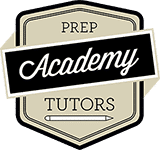Back-to-School Success: Essential Study Skills for Academic Excellence

As students across Waldorf, MD prepare to head back to the classroom, parents, educators, and learners alike are searching for ways to ensure a smooth and successful academic year. Whether a student is stepping into high school for the first time or navigating the complexities of middle school, adopting effective study habits is essential for long-term success. The back-to-school season is more than just buying new supplies—it’s about equipping students with the right mindset and strategies to excel academically. With a focus on structured study routines, practical learning techniques, and emotional well-being, learners in Waldorf, MD can achieve their full potential.
Creating an Organized Study Environment at Home
One of the most overlooked back-to-school tips is establishing an effective study space at home. A clutter-free, quiet area signals to the brain that it’s time to focus. In Waldorf, MD homes, transforming a spare corner of a room into a dedicated study zone can drastically improve concentration. Natural light, comfortable seating, and minimal distractions can foster productivity. Adding a small whiteboard or pinboard allows students to visualize upcoming tasks and deadlines, encouraging time management skills from an early stage.
Moreover, maintaining a consistent schedule can transform daily studying from a chore into a habit. Parents should work with their children to create a personalized study timetable that aligns with school hours and extracurricular activities. This predictability reduces procrastination and builds a steady academic rhythm. Study routines that are revisited regularly ensure children know what’s expected each day, reducing stress and allowing for balanced downtime.
Mastering Time Management Techniques
Time management is foundational to effective study habits. Students in Waldorf, MD who learn to prioritize tasks early on are better equipped to handle increasing academic pressures as they progress through school. One practical technique is the Pomodoro Technique, where learners study for 25-minute intervals followed by short breaks. This method helps maintain focus while preventing burnout.
Using digital planners or traditional notebooks to track assignments, tests, and project deadlines can also foster a sense of responsibility. Waldorf, MD students can color-code their tasks by urgency or subject, making it easier to visualize priorities. Allocating specific time slots for different subjects prevents last-minute cramming, which often leads to poor retention and heightened anxiety. By learning to divide larger tasks into smaller, manageable chunks, students gain confidence and experience consistent success.
Equally important is setting realistic goals. Short-term goals, such as completing a set number of math problems within an hour, build toward larger objectives like mastering an entire unit. Celebrating small wins keeps motivation high and reinforces productive study patterns.
Building Active Learning Skills for Long-Term Retention
Passive reading and highlighting are no longer sufficient for mastering complex school subjects. Active learning strategies—engaging with material through questioning, summarizing, and teaching—are critical to deep comprehension. In Waldorf, MD classrooms, students can enhance their grasp of new concepts by using flashcards, practicing retrieval exercises, and teaching peers what they’ve learned.
Mind mapping is another effective tool. By creating diagrams that link ideas together visually, students can see how different concepts relate to one another. This method is particularly beneficial in subjects like history and science, where understanding cause-and-effect relationships is key. Incorporating multimedia resources such as educational videos, apps, and interactive quizzes can further reinforce material while catering to different learning styles.
Encouraging students to ask questions during and after lessons strengthens critical thinking and analytical skills. Rather than memorizing answers, students learn to approach problems systematically, preparing them for higher-level academic challenges. Emphasizing comprehension over rote learning ensures they retain knowledge longer and apply it effectively in assessments and real-world scenarios.
Supporting Emotional Well-being for Academic Success
While cultivating effective study habits in Waldorf, MD is essential, addressing emotional well-being is equally critical to academic success. The pressures of school, peer relationships, and personal expectations can lead to anxiety if not managed carefully. Parents and educators should foster open communication, encouraging students to share their challenges without fear of judgment.
Mindfulness practices, such as guided breathing exercises or short meditations before studying, can help students manage stress and approach tasks with a calm, clear mind. Physical activity, whether through organized sports or simple outdoor play, promotes mental health and enhances cognitive function. Balanced nutrition and adequate sleep complete the picture, providing the physical foundation students need to learn effectively.
Additionally, building self-esteem through praise of effort rather than just outcomes encourages a growth mindset. When students believe their abilities can be developed through hard work and resilience, they are more likely to embrace challenges and persist in the face of difficulties. Emotional resilience, paired with solid study skills, creates a strong platform for sustained academic achievement.
Partnering with Teachers and Community for Holistic Support
Academic excellence isn’t achieved in isolation. Parents in Waldorf, MD can work closely with teachers to monitor progress and address concerns promptly. Regular communication between home and school ensures students receive consistent support tailored to their individual needs. Whether through parent-teacher conferences, emails, or school apps, staying connected to educators provides valuable insights into a student’s academic strengths and areas for improvement.
Participating in community programs and extracurricular activities also enriches a student’s educational experience. Local libraries, community centers, and tutoring services in Waldorf, MD often offer resources that supplement classroom learning. These programs provide additional practice in core subjects while fostering social skills and broadening students’ interests.
Ultimately, back-to-school success depends on a collaborative effort between students, parents, educators, and the wider community. By focusing on structured study habits, fostering emotional well-being, and building strong school-home partnerships, families in Waldorf, MD can empower students to excel academically and thrive personally.
Conclusion
Integrating these essential study skills into daily routines prepares students not only for academic excellence but also for lifelong learning. This back-to-school season presents the perfect opportunity to establish the habits and support systems that will carry students in Waldorf, MD toward future success.
Need Personalized Tutoring Services Near You?
Here at Prep Academy Tutors of Southern Maryland, we’re committed to providing personalized, high-quality tutoring that meets your child’s unique needs. Whether you’re looking for in-person or virtual tutoring, test prep, small group sessions, or academic counseling, our certified teachers and field experts are here to help. With no contracts, a dedicated instructor all year, and the flexibility to meet at your home or a local library, we make learning convenient and effective. Plus, we collaborate with your child’s school to ensure seamless support! Contact us today to give your child the skills, confidence, and success they deserve!
